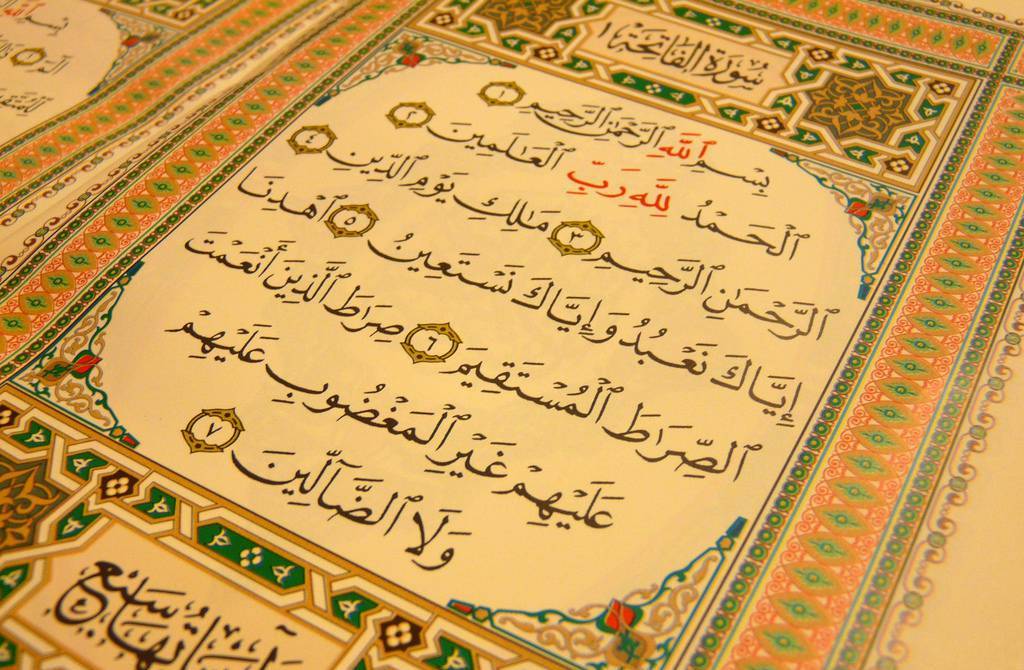بِسْمِ اللهِ الرَّحْمٰنِ الرَّحِيْمِ
Blind following has been an issue throughout the ages. There are many places in the Qur’an that mention different nations and this mentality towards the religion. Allah highlights where blind following can lead:
Say, “Not equal are the evil and the good, although the abundance of evil might impress you.” So fear Allah, O you of understanding, that you may be successful.
[5:100]
We can see around us that many practices in and out of Islam are a result of being deceived by the number of people that carry them out. People tend to see the majority performing an action and suddenly it becomes the right thing to do. There are many stories in history pertaining to this, one that comes to mind is of a practice that was done in North Africa.
It all started with one person who decided one day that he was going to visit a random man’s grave who apparently was a Muslim scholar and make tawaf (circumambulate) around it. It then became a habit of his, every time he was going through the area he would do the tawaf then continue his journey.
Others from the village then blindly followed without knowing what they were doing or why, until it became widespread. After a while someone decided to dig up the grave and it turned out that not only were the people committing a form of treachery against Allah by doing tawaf around a grave but that the grave belonged to a dog.
Allah teaches us in this ayah that no matter how abundant or widespread an act might be, evil will always be evil. He teaches us that we must be weary of the fact that when bad things come in plenty they may not look so bad – people get desensitised to them. This is why keeping the religion in its pure form is so important.
Sometimes we include cultural practices within Islam which are variations in what the religion teaches us. These variations become so common and widespread that everyone in that culture starts doing it, to the point when the only proof as to why they do it is simply “everybody does it” – this becomes the only line of reasoning.
“Although the abundance of evil may impress you” – meaning simply that these people just follow everybody else.
Allah then adds beautifully: “So fear Allah, O you of understanding, that you may be successful” – those of understanding are those who are clear thinkers, unbiased people. These people do not take sides or blind follow for the sake of being part of the group. These are the people who do not cave into peer pressure, they think for themselves, they look at the proof not at the number of people who are carrying out the actions.
The surah continues:
O you who have believed, do not ask about things which, if they are shown to you, will distress you. But if you ask about them while the Qur’an is being revealed, they will be shown to you. Allah has pardoned that which is past; and Allah is Forgiving and Forbearing.
[5:101]
A conversation with the prophet (ﷺ) was narrated around the time this ayah was released. He said to the people: “O people, Allah has enjoined Hajj on you, so perform Hajj.” A man said: “Is it every year, O Messenger of Allah?” He remained silent until (the man) said it three times.
Then the Messenger of Allah (ﷺ) said: “If I said yes it would be obligatory and you would not be able to do it.” Then he said: “Be content what I leave with you, for those who came before you were destroyed because they asked too many questions and argued with their Prophets. If I tell you to do something then do as much of it as you can, and if I tell you not to do something then abstain from it.” [Muslim]
A story in the Qur’an that pertains to this topic is of the cow in the 2nd surah when the Israelites were told by Musa to slaughter a cow. Slaughtering a cow was the only detail given but they kept asking for more and more details making their own lives more difficult, to the point where the description was so specific that only one cow fit. If they had followed the first commandment, it would have been any cow but due to their persistence their lives were made a lot more difficult.
This ayah is not talking about searching for answers in the religion like how to carry out certain actions or whether something is permissible but rather it’s about going too deep. There are certain aspects of life that Allah has left out, things that He has not told us about. For example most of what is in the unseen. We have very limited narrations of what the unseen is like and that is due to our limited minds. Just as our eyes and ears have limits as to what we can see and hear, our minds have a limit as to what we can think.
Allah has made very clear what we need to know in this life to succeed.
Another aspect that is in line with this teaching is the notion of asking about something with a preconceived idea that we have no intention of changing based on truth. For example – we want to know if some sort of act is haram or not. We read something of one renowned scholar talking about a hadith or ayah from the Qur’an or gives a fatwa based on a ruling that says it is in fact impermissible, we didn’t like reading it.
Thus we search and ask another scholar – who says the same thing. Then we ask a local imam who agrees with the scholars, none of this is what we want. Then we move on to ask a relative or friend who has no qualifications or barely a connection with Islam and says the act is perfectly fine or “not that bad”, and with this we conclude that there is a “difference of opinion”, therefore it cannot be finalised as haram.
If we are to ask about things let us be genuine with ourselves – whatever verdict Islam has to offer we accept. Sometimes we are given answers that we are sincerely not convinced of, that’s a separate issue. Sincerity as in we go in asking a question with the mindset that whatever convincing answer there is from the deen we will place our desires to the side and submit.
Then if when we get an answer we feel that it’s not enough, we search some more for a deeper understanding. Allah calls us “the people of understanding”, so if something is not being understood it should be looked into further, thus why real scholarship is so important especially with fiqh matters – for what is haram or halal we look into what the people of knowledge have to say.
This of course only comes with pure intentions and we all know if we are being genuine. Whenever we have pure intentions Allah will guide us to the correct understanding of His deen.
May Allah give us all a clear understanding of His deen and guide those who are blind followers.
Allah knows best.



